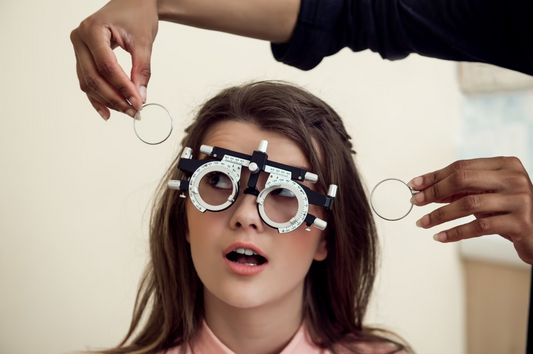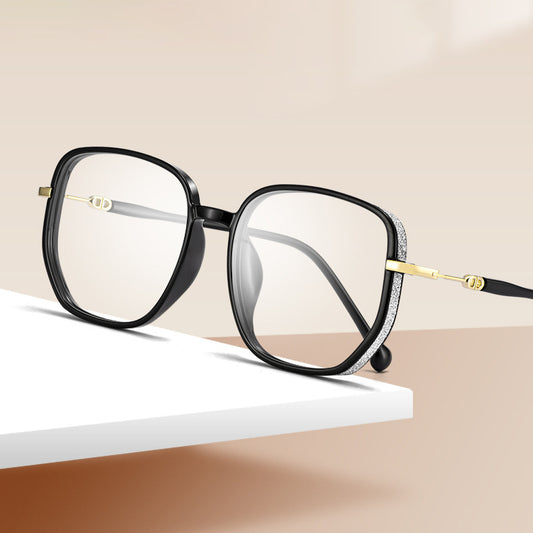Vision problems can affect people of all ages and can have a significant impact on daily life. From minor issues like eye strain to more serious conditions like cataracts and glaucoma, there are many different types of vision problems that can occur. In this article, we will explore the causes, symptoms, diagnosis, treatment, and prevention of vision problems.
Causes of Vision Problems
There are many different factors that can contribute to the development of vision problems. Some of the most common causes include:
Age-related changes
As we age, our eyes undergo various changes that can affect our vision. This includes changes to the lens of the eye, changes to the retina, and a decrease in the production of natural lubrication.
Eye injuries or trauma
Eye injuries, such as a blow to the eye, can cause vision problems. Trauma to the eye can also cause long-term damage that affects vision.
Genetics
Some vision problems are hereditary and can be passed down through families. This includes conditions like myopia, hyperopia, and astigmatism.
Medical conditions
Certain medical conditions, such as diabetes and hypertension, can affect vision. Other conditions, such as multiple sclerosis and Parkinson's disease, can also cause vision problems.
Lifestyle factors
Lifestyle factors like smoking, poor nutrition, and lack of exercise can all contribute to the development of vision problems.
Common Types of Vision Problems
There are many different types of vision problems that can occur. Some of the most common include:
Myopia (nearsightedness)
People with myopia have difficulty seeing objects that are far away. This is caused by a refractive error in the eye that causes light to focus in front of the retina instead of on it.
Hyperopia (farsightedness)
People with hyperopia have difficulty seeing objects that are close up. This is caused by a refractive error in the eye that causes light to focus behind the retina instead of on it.
Astigmatism
Astigmatism occurs when the cornea of the eye is not perfectly round, causing light to focus unevenly on the retina. This can cause blurred or distorted vision.
Presbyopia
Presbyopia is a condition that affects people as they age. It is caused by a loss of flexibility in the lens of the eye, which makes it difficult to focus on objects that are close up.
Cataracts
Cataracts occur when the lens of the eye becomes cloudy, causing vision to become blurred or distorted. This is a common condition that affects many people as they age.
Glaucoma
Glaucoma is a condition that affects the optic nerve and can cause vision loss. It is often caused by increased pressure in the eye.
Symptoms of Vision Problems
The symptoms of vision problems can vary depending on the type and severity of the condition. Some common symptoms include:
- Blurred vision
- Double vision
- Floaters and flashes
- Eye pain or discomfort
Diagnosis of Vision Problems
If you are experiencing symptoms of a vision problem, it is important to see an eye doctor for a comprehensive exam. Some common tests that may be performed include:
- Comprehensive eye exam
- Visual acuity test
- Refraction test
- Tonometry
- Pupil dilation
- Visual field test
Treatment of Vision Problems
The treatment for vision problems will depend on the type and severity of the condition. Some common treatments include:
- Corrective eyeglasses or contact lenses
- Refractive surgery
- Cataract surgery
- Glaucoma treatment
Prevention of Vision Problems
There are many things you can do to help prevent vision problems, including:
- Proper eye care and hygiene
- Regular eye exams
- Healthy lifestyle habits
- Eye protection
Conclusion
Vision problems can have a significant impact on your quality of life, but with proper care and treatment, many of these conditions can be managed or even cured. If you are experiencing symptoms of a vision problem, don't wait to seek treatment. With the right care, you can protect your eyes and maintain your vision for years to come.
FAQs
Q1. Can vision problems be cured?
A1. The treatment for vision problems will depend on the type and severity of the condition. Many vision problems can be managed or even cured with proper care and treatment.
Q2. How often should I get an eye exam?
A2. It is recommended that adults get a comprehensive eye exam every 1-2 years, or as recommended by their eye doctor.
Q3. Are there any natural remedies for vision problems?
A3. While there are some natural remedies that may help with certain vision problems, it is important to seek advice from an eye doctor before trying any new treatments.
Q4. Can lifestyle changes improve my vision?
A4. Yes, making healthy lifestyle changes can help improve your overall eye health and may even help prevent vision problems from developing.
Q5. Is it safe to wear contact lenses?
A5. Yes, contact lenses are safe when worn and cared for properly. It is important to follow the instructions of your eye doctor and contact lens manufacturer to ensure proper use and care.








